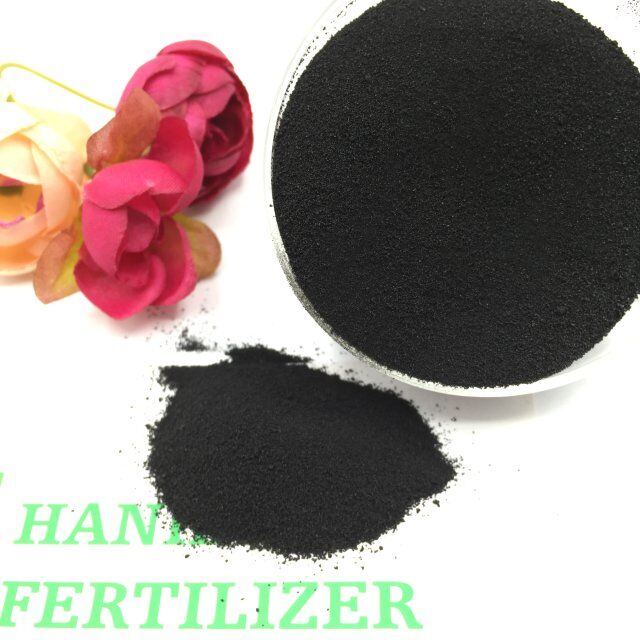
พ.ย. . 10, 2024 19:55 Back to list
Understanding NPK Fertilizers for Optimal Plant Growth and Nutrient Management
Understanding NPK Fertilizer and Its Impact on Plant Growth
NPK fertilizer is essential in modern agriculture, known for its three primary nutrients Nitrogen (N), Phosphorus (P), and Potassium (K). Each of these elements plays a crucial role in plant health and growth, making NPK fertilizers a cornerstone of successful farming and gardening practices.
The Importance of Nitrogen (N)
Nitrogen is a vital component of amino acids, proteins, and chlorophyll, which is necessary for photosynthesis. It promotes lush, green foliage and is especially critical during the vegetative growth stage of plants. A nitrogen deficiency often leads to stunted growth and yellowing of leaves, a condition known as chlorosis. Therefore, maintaining adequate nitrogen levels is essential for promoting strong, healthy plants that can maximize their growth potential.
The Role of Phosphorus (P)
Phosphorus is crucial for energy transfer within the plant, playing a significant role in the formation of DNA, RNA, and ATP (adenosine triphosphate), which is the energy currency of cells. This element is particularly important during the flowering and fruiting stages of plants. A deficiency in phosphorus can result in poor flowering, smaller fruits, and inadequate root development. For this reason, phosphorus is often referred to as the energy nutrient, as it helps plants convert sunlight into energy efficiently.
Potassium (K) and Its Benefits
Potassium is vital for overall plant health, influencing various physiological processes. It regulates water use and promotes drought resistance, enhances nutrient absorption, and strengthens plant cell walls, making them more resilient to diseases. Potassium also plays a role in the synthesis of proteins and starches. A lack of potassium can lead to weak stems, curling leaves, and overall poor plant health. Therefore, adequate potassium levels are crucial for ensuring plants can endure environmental stressors.
npk fertilizer plants

Understanding NPK Ratios
NPK fertilizers come with specific ratios that indicate the percentage of each nutrient in the fertilizer bag. For instance, a fertilizer labeled 10-20-10 contains 10% nitrogen, 20% phosphorus, and 10% potassium. The choice of NPK ratio depends on the specific needs of the plants being cultivated. For example, flowering plants may require a higher phosphorus ratio to encourage blooms, while leafy vegetables may benefit from a nitrogen-rich formula.
Application Methods
The application of NPK fertilizers can be done in several ways, including broadcasting, side-dressing, and foliar sprays. Each method has its benefits and drawbacks, and the choice often depends on crop type, growth stage, and the specific nutrient requirements of the plants. It’s crucial to follow application guidelines to avoid over-fertilization, which can lead to nutrient runoff and environmental damage.
Environmental Considerations
While NPK fertilizers are beneficial for plant health, it is essential to consider their environmental impact. Over-reliance on fertilizers can lead to soil degradation, water pollution, and disruption of local ecosystems. Sustainable practices such as crop rotation, composting, and the use of organic fertilizers can help mitigate these issues while maintaining soil health.
Conclusion
In conclusion, NPK fertilizers are a fundamental tool for enhancing plant growth and maximizing agricultural yields. Understanding the role of nitrogen, phosphorus, and potassium, and their specific ratios, can help gardeners and farmers make informed decisions that cater to their crops’ needs. However, with great power comes great responsibility; hence, sustainable practices should be embraced to ensure that we protect our environment while reaping the benefits of efficient crop production. By balancing plant nutrition with ecological stewardship, we can cultivate healthier crops and a healthier planet.
-
High-Quality NPK Fertilizer Raw Material Manufacturer & Supplier Trusted Factory Exporter
NewsJul.08,2025
-
Organic 20-20-20 Plant Fertilizer Supplier Premium Organic Fertilizer Manufacturer
NewsJul.08,2025
-
Ammonium Sulfate Fertilizer Market - Leading Manufacturer, Supplier & Factory Solutions
NewsJul.08,2025
-
Premium Water Soluble Fertilizer 20-20-20 Reliable Manufacturer & Competitive Prices
NewsJul.07,2025
-
10-52-10 Fertilizer Supplier – Premium NPK Compound & Granular Fertilizers for Crop Growth
NewsJul.07,2025
-
Best Blueberry Organic Fertilizer - Premium Factory & Supplier Boost Your Blueberry Yield
NewsJul.07,2025
